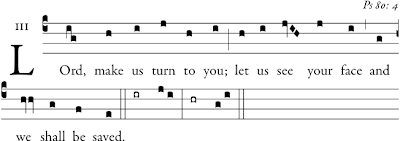Today the Bishop of Charleston, South Carolina announced that I will become the new Administrator of Prince of Peace Catholic Church in Taylors, South Carolina. I come home from my studies in Spain on December 1 and take up the reins of the new parish on December 15, which also happens to be my Father’s birthday! I hope to defend my dissertation in the spring at the University of Navarre, and I can leave confident that I am almost done.
I am very excited about this new appointment and wanted to share it with our Chant Café readers, first of all to ask your prayers. The Administrator pro tempore, who will become my new Parochial Vicar, Fr Richard Tomlinson, is guiding the parish to welcome the new translation. He is a graduate of Princeton and a doctor in Biblical Theology from the Angelicum in Rome, so I know he will prepare the people well. So well prepared, in fact, that they will have to teach it to me, because here in Pamplona, I have yet to see the new books!
Going back to the area where I grew up will be quite an experience. I first went to Prince of Peace when I was 14 years old, to a sacred music conference of all things. I remember I was asked to sing the first verse of the chant setting of the Ave verum corpus. It was one of the first times I had ever sung chant in church, and I was transfixed by that simple little melody. Twenty years later, I go back as this parish’s spiritual father.
A lot has changed in twenty years. I am now mostly grey, but I have already come to know a large proportion of the parishioners. It is my first solo flight in the cockpit, and in the Diocese, I cannot be made Pastor yet because of my youth. The parish has built a very large church, a modern interpretation of Romanesque. The Greenville area is home to other well-known priest bloggers. Father Jay Scott Newman, the Pastor of St Mary’s, my home parish, and Fr Dwight Longenecker, the Pastor of Our Lady of the Rosary. All three of us are converts!
The previous Pastor of Prince of Peace, Monsignor Steven Brovey, is now Rector of our Cathedral of St John the Baptist in Charleston, where the famous Scott Turkington is the Director of Music. The good Monsignor lovingly built up a rich liturgical culture in the parish, and will be missed. He leaves behind some big shoes to fill: one of the best schools in the state, a strong commitment to the social apostolate of the Church, and a large and vibrant parish.
The parish is unique in Upstate South Carolina, because it has the Ordinary and the Extraordinary Form. And soon enough, we will be able to offer the Mass in both forms every day. The music is under the very capable direction of Maestro Alan Reed, who also is the Director of Chicora Voices, the local children’s choir.
Greenville County, South Carolina, the buckle of the Bible Belt, may seem the oddest place in the world for a flourishing Catholic culture. The good weather, the vibrant economy, and Southern hospitality have met with liturgical and musical excellence, Gospel preaching, and pure, unadulterated Catholicism. Like living in Rome, London and Paris, there’s an embarrassment of riches of where to go for Church on a Sunday morning. So y’all come right on down and see us. Bookmark our website at www.princeofpeacetaylors.org and stay tuned for more. Oh, and after you’ve contributed to all of the good initiatives of Chant Café, we have a $1.5 million debt to pay off the church, so send us some prayers and a few shekels!
Please keep me and this wonderful community of faith in your prayers. And know of my prayers for all of the readers of Chant Café!








